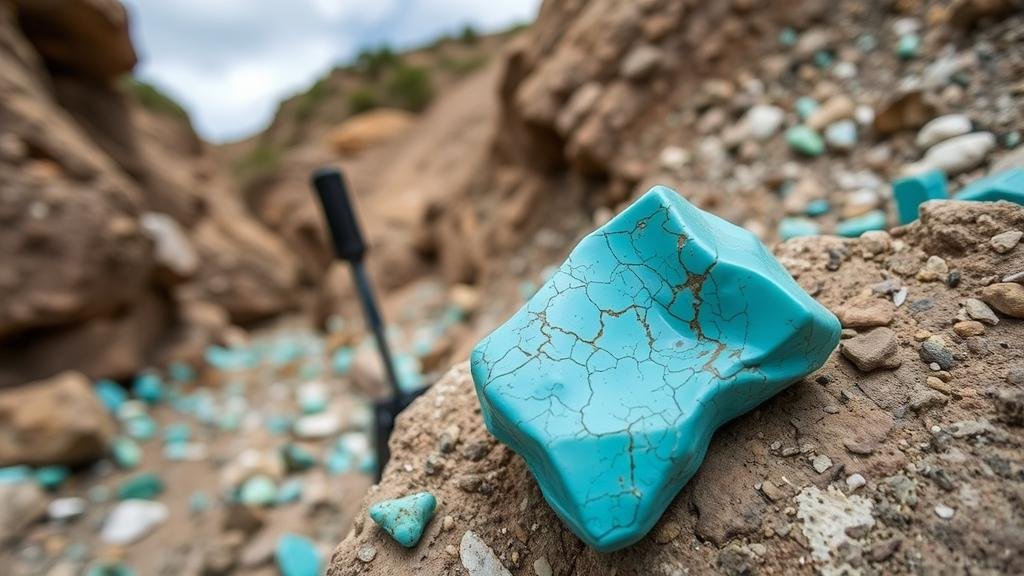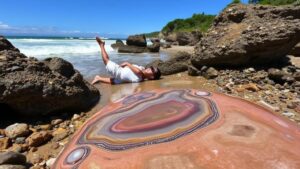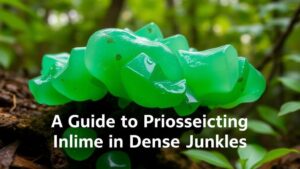Searching for turquoise in abandoned mines near Silver City, where some of the oldest deposits in the region exist.
Searching for Turquoise in Abandoned Mines Near Silver City
Silver City, New Mexico, is renowned for its rich geological history and mineral deposits. Among those, turquoise–an emblematic gemstone–has long captured the interest of rockhounds and mineral collectors. This article delves into the unique opportunities for discovering turquoise in the regions abandoned mines, renowned as some of the oldest deposits in the United States.
The Appeal of Silver City’s Geology
Silver City is situated amidst geological formations known for their mineral diversity. area is characterized by the presence of various mining activities dating back to the mid-19th century, resulting in numerous abandoned mines that are now potential sites for turquoise hunting. The turquoise found in this region is primarily associated with copper deposits, which are known to occur in approximately 0.4% of the ore found in copper mines.
The Historical Context of Turquoise Mining
Historically, Indigenous peoples prized turquoise not only for its aesthetic qualities but also for its spiritual significance. Mining activities in the Southwestern U.S. surged during the 1800s, leading to the extraction of valuable minerals. According to the U.S. Geological Survey, turquoise mining peaked in the late 19th century. Regions around Silver City saw numerous small-scale prospectors pulling turquoise from secondary deposits derived from weathering copper minerals.
Identifying Turquoise Deposits
When searching for turquoise, it is essential to know what to look for. Typically, turquoise appears as a bluish-green stone, often exhibiting a waxy luster. Natural turquoise can be found as:
- Massive deposits within sedimentary rocks
- Veins of turquoise intermingled with matrix minerals
- Chalky or crumbly fragments near former mining sites
One key identifier is the presence of copper minerals like malachite or azurite, which often accompany turquoise deposits. Miners should also be aware of secondary uranium minerals that can indicate favorable conditions for turquoise formation.
Safety Considerations when Exploring Abandoned Mines
Exploring abandoned mines presents various safety risks. It is crucial to adhere to the following safety tips:
- Always wear appropriate safety gear, including helmets and strong boots.
- Never go alone; always have a companion when exploring remote sites.
- Be cautious of unstable structures and potential toxic materials.
According to the Bureau of Land Management (BLM), many abandoned mines in the U.S. are unmarked, posing risks of collapse or hazardous conditions. efore, it is vital to consult local guides or mining organizations before embarking on your adventure.
Practical Tips for Rockhounds
For collectors eager to uncover turquoise, here are some practical tips to enhance your experience:
- Research Locations: Familiarize yourself with known mining sites around Silver City, such as the old Burro Mountain mines, which historically produced turquoise.
- Prospecting Tools: Equip yourself with a shovel, geological hammer, and a hand lens to examine mineral specimens closely.
- Join a Community: Consider connecting with local rockhounding clubs or groups that often share tips, tools, and even site access.
Conclusion and Actionable Takeaways
Searching for turquoise in the abandoned mines near Silver City provides not only a unique treasure-hunting experience but also a chance to delve into the historical and geological significance of the area. With precautionary measures in place, thorough research, and adherence to safety standards, rockhounds can enjoy a rewarding adventure. Remember to respect the land, leave no trace, and share your discoveries with fellow enthusiasts!



